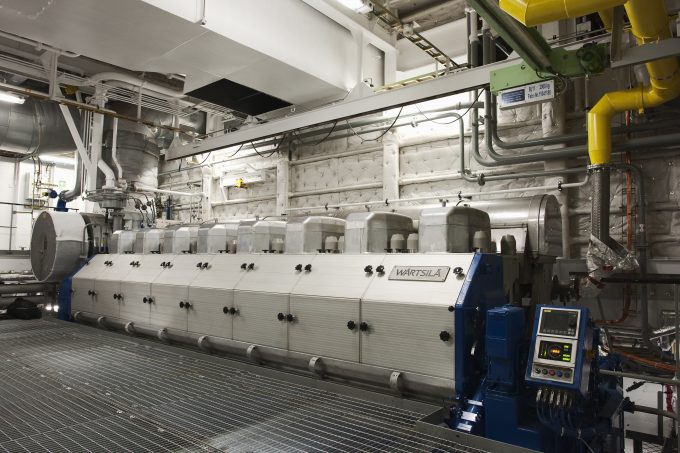Slow steaming not the way to reduce emissions, 'check the ship's systems'
Despite being highlighted by the International Maritime Organization’s carbon intensity indicator (CII) index, slow steaming ...

Leading engine manufacturer Wärtsilä has disputed claims that using LNG (liquefied natural gas) would result in zero savings in greenhouse gas emissions.
As reported in The Loadstar, chief executive of the Association of Bulk Terminal Operators Ian Adams claimed not only that methane levels in LNG would offset any savings, but also had the potential to increase emissions.
Mr Adams’ claims rested on the idea of fuel leaks, where LNG would change from a liquid to methane gas that dissipates into the atmosphere as a GHG emission 28 times more potent than CO2.
Mr Adams said a 4% methane leak – or “slip” – was equivalent to the environmental impact of the CO2 produced when burning fuel oil.
Wärtsilä spokesperson Marit Holmlund-Sund told The Loadstar, that LNG use had “undoubtedly raised concerns” about the environmental impact of methane emissions.
“A methane slip of 6g/kWh [pollution levels for ships are measured in grammes per engine energy output] can normally be regarded as the ‘break-even’ level,” she said.
However, she noted that engines that can limit slippage to less than 6g/kWh were not only attainable, but currently available.
“Wärtsilä continuously develops its engines and in-engine remedy technologies to reach even lower methane levels and consequently many of the Wärtsilä large gas engines can reach 3-4 g/kWh,” she added.
In normal operating conditions, Ms Holmlund-Sund said GHG emissions (calculated as CO2 equivalents) of an LNG operated vessel were 5-10% lower than heavy fuel vessels.
“Moreover LNG provides, without exhaust cleaning, remarkable reductions of other harmful emissions, such as nitrogen oxide, sulphur oxide and particulate matters (85%, 99%, and 90% accordingly),” she explained.
“LNG is one of the most emission-sound fuels, and replacing conventional fuels with LNG will significantly reduce vessel emissions.”
Baltic Sea ferry operator Viking Line commissioned Wärtsilä to install a dual-fuel engine on its newbuilding Viking Grace, which operates between Stockholm and Turku.
The engine is capable of running on oil or LNG, and this year competed its thousandth LNG bunkering since it was delivered at the beginning of 2013.
Comment on this article